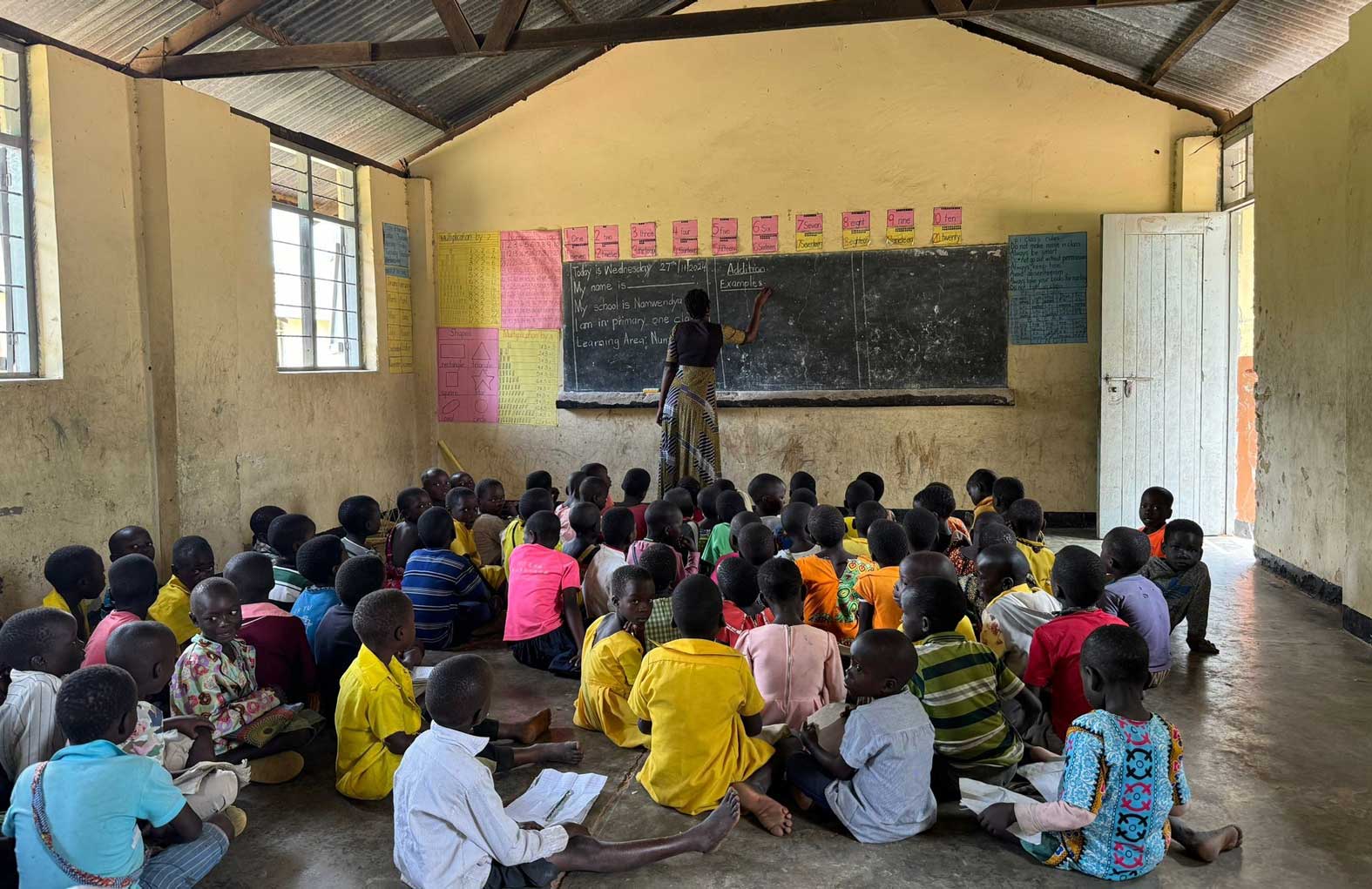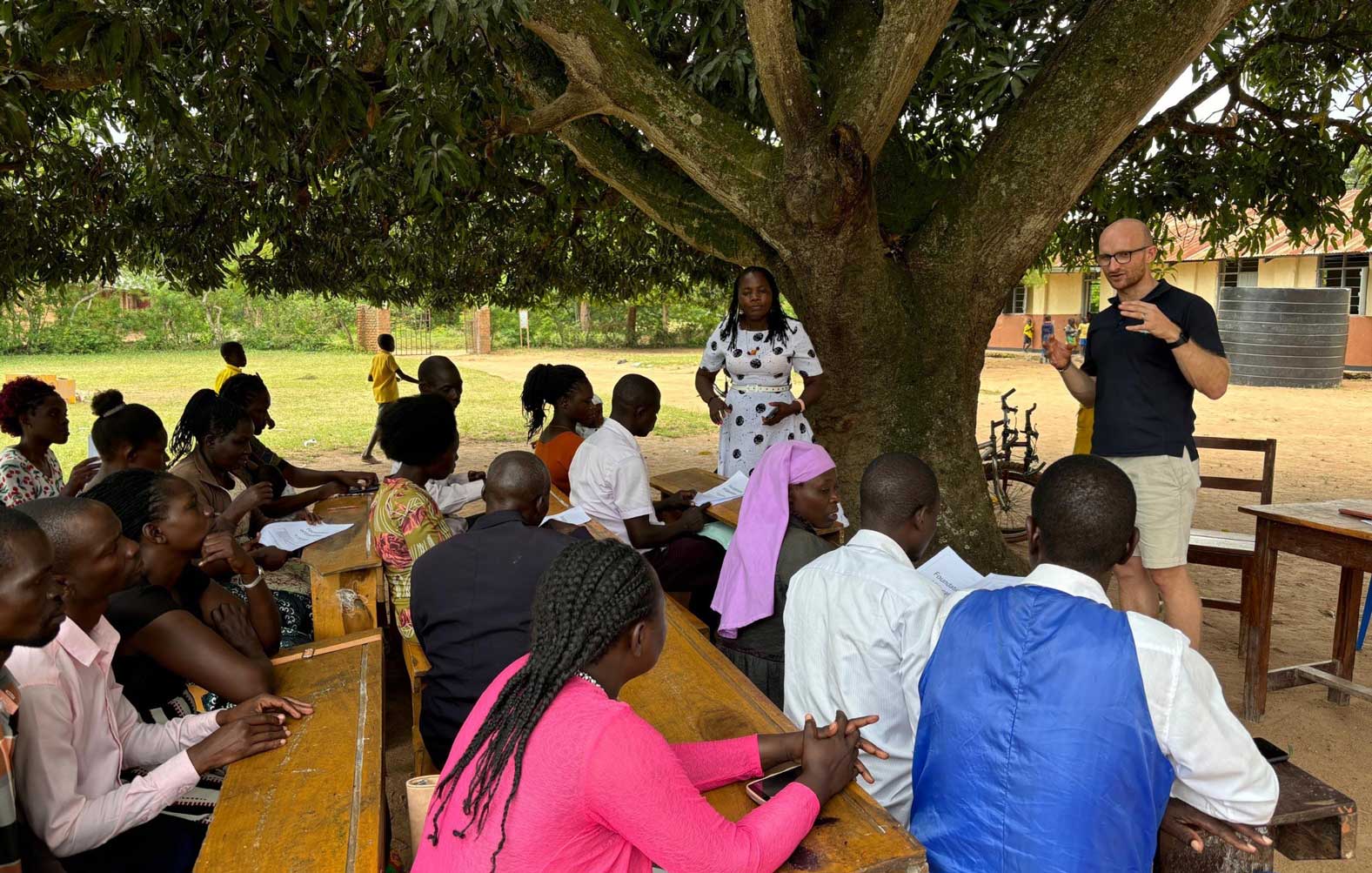In recent years, the global education community has increasingly recognized the transformative power of play-based learning, particularly in early childhood education. Throughout my professional life I have extensively explored the implementation and benefits of play-based methodologies, drawing insights from diverse educational contexts, including running my own nursery for 10 years and working in education from early years through to higher education.
In this article I will consider the central role of play-based learning in creating better futures for young people in rural Uganda. I will draw upon my recent experiences visiting nurseries and schools in rural Uganda and my learnings from interacting continuously with those individuals working on the ground to make a positive difference, every day.
The Significance of Play-Based Learning
Play-based learning is an educational approach that uses play as the primary method for teaching and learning. This methodology fosters critical thinking, problem-solving, and social skills among children. Play-based learning is not merely about allowing children to play but involves structured activities that promote cognitive and emotional development. I assert that such an approach can lead to more impactful educational outcomes, as it aligns with children's natural learning processes.
These ideas resonate with seminal thinkers in education. For example, Vygotskyemphasises the role of social interaction in learning, suggesting that play-based learning supports development within the zone of proximal development by allowing children to engage in guided activities that stretch their abilities. Furthermore, drawing on the Montessori philosophy highlights the alignment with the structured nature of play-based learning, as it advocates for child-centered activities that foster independence, creativity, and hands-on exploration in a prepared environment.

A Typical primary school classroom in the Tororo Region, ruraI Uganda.
Insights from Uganda: A Call to Action
My experiences in Uganda have been instrumental in shaping my priorities around education in 2025. During my visits, I observed the challenges faced by educators and students, including limited resources and infrastructural constraints, as well as a lack of accessible and meaningful professional development for teachers. Despite these challenges, I noted the resilience and creativity of both teachers and students in utilising available resources to facilitate learning. These observations have led me to advocate for a global call to action to support educational initiatives in under-resourced regions, emphasising the need for collaborative efforts to enhance educational access and quality.
Implementing Play-Based Classrooms: Strategies and Challenges
Transitioning to a play-based classroom requires careful planning and a shift in traditional teaching paradigms, particularly in relation to where education Uganda is currently at. Here are several strategies that could support its successful implementation:
- Teacher Training: Educators need comprehensive training to effectively facilitate play-based learning, including understanding child development and designing appropriate play activities.
- Curriculum Integration: Incorporating play into the curriculum should be intentional, ensuring that play activities align with educational objectives and learning outcomes.
- Parental Involvement: Engaging parents and caregivers is crucial, as their support reinforces the value of play-based learning at home and within the community.
However, challenges such as resistance to change, cultural perceptions of play, and resource limitations can impede implementation. Addressing these challenges requires a concerted effort from policymakers, educators, and communities to create an environment conducive to play-based learning. I suggest we start small, with a dedicated play-based room in all schools and nurseries with the space. This room can be purposefully resourced with the prime areas of learning and characteristics of effective learning in mind. These include playing and exploring, active learning and thinking creatively and critically.

Dr Fogarty leading a training session with a group of teachers from 4 different schools in the Tororo region, rural Uganda.
Reflections on Educational Contexts: Uganda and Beyond
My reflections highlight that while educational contexts may differ, common themes such as the importance of teacher support, community engagement, and adaptable teaching methods are universally relevant. In Uganda, I observed that community involvement played a significant role in educational success, with local leaders and parents actively participating in school activities. This community-centric approach can serve as a model for other regions seeking to enhance educational outcomes through collective effort.
Moving Towards Impactful Educational Practices
- To achieve more impactful educational practices, I am advocating for:
- Collaborative Learning: Encouraging collaboration among students to build social skills and enhance learning experiences.
- Resource Optimisation: Utilising available resources creatively to overcome material limitations, a practice I observed in Ugandan schools.
- Continuous Professional Development: Providing ongoing training opportunities for educators to stay abreast of innovative teaching methodologies and adapt to changing educational needs.
By adopting these practices, educational institutions can create more engaging and effective learning environments that cater to the diverse needs of students.
Conclusion
These insights into play-based learning and my experiences in Uganda offer valuable lessons for educators worldwide. Implementing play-based methodologies requires a holistic approach that includes teacher training, curriculum development, and community engagement. By reflecting on different educational contexts and embracing innovative practices, educators can work towards creating more impactful and inclusive educational experiences for all children.
If you are interested in supporting this work please reach out to me and connect with the work of the ConnectED International charity I do this work through.
Dr Lewis Fogarty
hello@connectedintl.com
https://www.connectedintl.com/